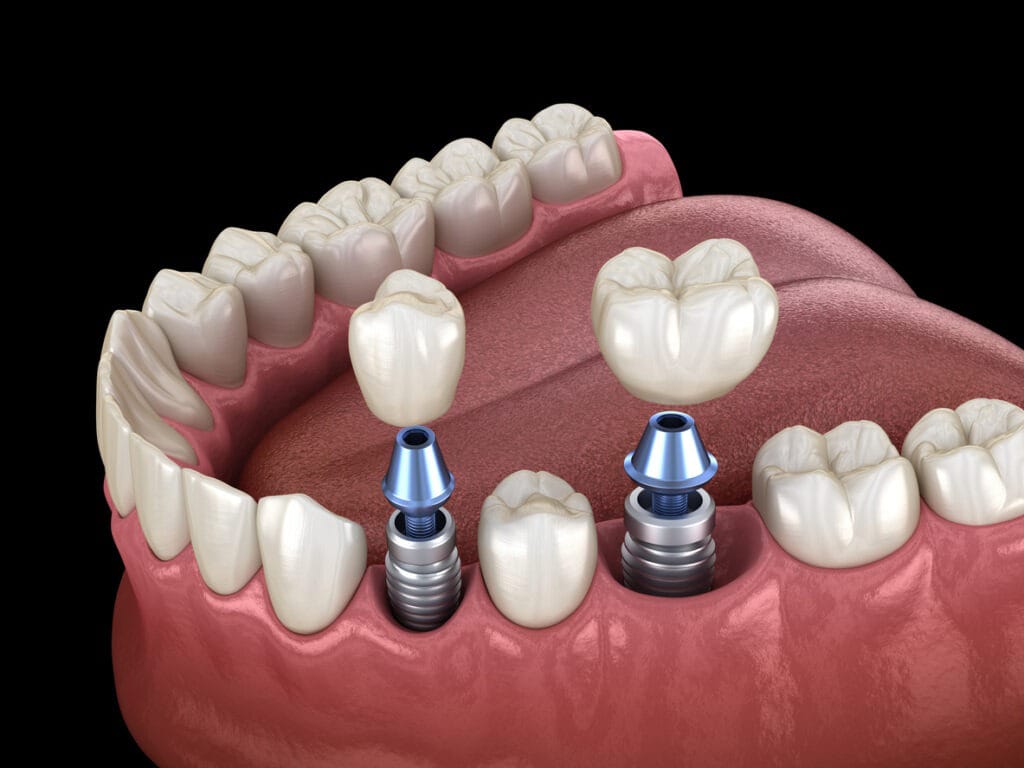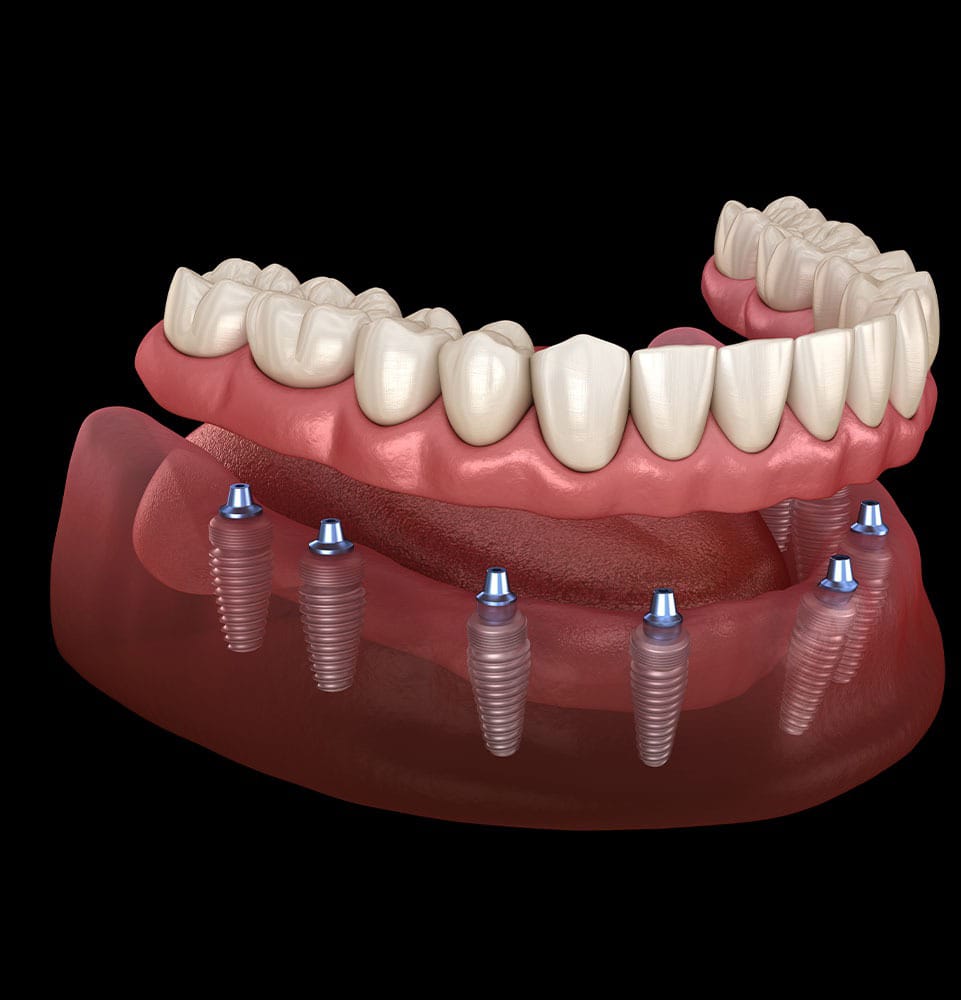Dental implants have become a popular solution for replacing missing teeth, offering a natural look and feel. However, like any medical procedure, complications can occur, making it crucial to understand how to avoid or address potential issues. By recognizing early signs of problems and following proper aftercare, you can increase the lifespan of your implants and maintain your oral health.
The key to preventing complications with dental implants lies in vigilance and proper care. Whether it’s following your dentist’s post-procedure advice or keeping up with regular check-ups, taking these steps ensures that your implant remains strong, functional, and comfortable for years. Read on to learn more about how to identify and prevent complications with dental implants.
Understanding Dental Implants: What You Need to Know

Dental implants are a modern solution for replacing missing teeth. They are designed to look, feel, and function like natural teeth, helping you regain your smile and confidence. If you’ve been considering dental implants Vaughan, it’s important to understand how they work and the benefits they offer.
From improved oral health to enhanced appearance, dental implants can be a long-term investment in your well-being.
What Are Dental Implants?
Dental implants are small, titanium posts that are surgically placed into the jawbone. These posts act as artificial tooth roots. Once they’re in place, your dentist can attach a crown (a fake tooth) to the implant. This makes the new tooth stable and secure, just like your natural teeth. Over time, the bone around the implant heals and fuses with the titanium post, making it a permanent solution.
Why Choose Dental Implants?
Dental implants offer several benefits over other tooth replacement options like dentures or bridges. One of the biggest advantages is that they provide a permanent solution. Unlike dentures, which need to be removed at night, implants stay in place. This means you can eat, speak, and smile with confidence, without worrying about your teeth slipping.
Another advantage is that dental implants help preserve your jawbone. When you lose a tooth, the bone in that area can begin to weaken over time. Implants stimulate the jawbone and help prevent this from happening. This is especially important for keeping the shape of your face and preventing changes in your appearance.
The Dental Implant Process
The process of getting a dental implant usually involves multiple steps. First, your dentist will assess your oral health and jawbone to determine if you’re a good candidate. Then, the implant is placed in your jawbone, and a healing period begins. After the implant fuses with the bone, a crown is attached to complete the process. While it may take a few months, the result is a strong, permanent tooth replacement.
Dental implants are a reliable, long-lasting option to restore your smile and your oral health. If you’re considering implants, make sure to talk to your dentist about the best options for your needs.
Identifying Potential Complications with Dental Implants

While dental implants are generally safe and effective, complications can occasionally arise. Being aware of potential issues can help you address them early and ensure the long-term success of your implant. Let’s take a look at some common complications and how you can identify them.
Signs of Implant Failure
One of the first things to watch for after getting a dental implant is any sign of failure. While rare, it can happen, and early detection is crucial. If you experience persistent pain, swelling, or redness around the implant site, these could be signs that something isn’t right. A slight amount of discomfort after the procedure is normal, but ongoing pain or discomfort may indicate an infection or implant movement.
Another sign of failure could be if the implant feels loose or shifts when you chew. A properly placed dental implant should feel as stable as a natural tooth. If you notice that your implant feels unsteady, it’s important to contact your dentist right away.
Common Complications to Watch For
In addition to implant failure, other complications may arise. For example, gum recession around the implant can lead to exposure of the metal post, which can affect both the appearance and function of the implant. Gum inflammation or infection is another issue to keep an eye on. If you notice your gums are red, swollen, or bleed easily, this could indicate an infection that needs prompt treatment.
Sometimes, nerve damage can occur during the implant procedure. While it’s not common, if you experience unusual tingling, numbness, or sensitivity in your gums, lips, or chin, this could be a sign of nerve damage. It’s important to get these symptoms checked out as soon as possible to prevent permanent damage.
Early Warning Signs
The best way to catch potential problems early is through regular check-ups with your dentist. They will monitor the implant site for any signs of complications and will address any issues before they become serious. In the meantime, pay attention to how your implant feels. If you notice any discomfort, change in appearance, or changes in how your implant functions, it’s always better to reach out to your dentist for advice.
By staying informed and proactive, you can enjoy the benefits of dental implants without the worry of complications. Regular care and vigilance are key to ensuring your implant remains in great shape for years to come.
Preventing Dental Implant Complications: Tips for a Smooth Recovery
Getting a dental implant is a big step toward restoring your smile, but proper care after the procedure is essential to avoid complications. By following your dentist’s instructions and taking the right precautions, you can help ensure a smooth recovery and the long-term success of your implant. Here are some key tips to keep in mind.
Follow Your Dentist’s Post-Procedure Instructions
Right after the dental implant procedure, your dentist will provide specific care instructions. These guidelines are critical for a smooth recovery. One of the first things you’ll likely be advised to do is rest for the first 24 hours. This gives your body the chance to begin the healing process without unnecessary strain.
Another important instruction is to maintain a gentle oral hygiene routine. For the first few days, you may need to avoid brushing near the implant site, but it’s still important to keep your mouth clean. Your dentist will likely recommend using an antibacterial mouthwash to prevent infection.
Avoid Certain Foods and Activities
In the first few days after surgery, it’s best to avoid eating hard, crunchy, or chewy foods that could put stress on the implant. Stick to soft foods like yogurt, mashed potatoes, and smoothies. This will help prevent any unnecessary pressure on the healing area and reduce the risk of damaging the implant.
It’s also important to avoid smoking during your recovery period. Smoking can slow down the healing process and increase the risk of infection. Alcohol can have a similar effect, so it’s best to limit or avoid it until your dentist clears you for normal activities.
Keep Up with Regular Dental Visits
Even after your dental implant is in place, regular follow-up visits with your dentist are essential. These check-ups help ensure that the implant is healing properly and are the best way to spot potential issues before they become serious. Your dentist will also check the alignment and stability of the implant to make sure everything is functioning as it should.
During these visits, your dentist may also clean the area around the implant to prevent plaque build-up. Plaque can lead to infections or gum disease, so keeping up with your dental hygiene routine is just as important during recovery as it will be long-term.
The Importance of Healthy Habits
Healthy lifestyle choices can significantly impact the success of your dental implant. Staying hydrated, eating a balanced diet, and getting enough rest can all speed up the healing process. Avoiding excessive stress on your body is also important, as stress can weaken your immune system and make it harder for your body to heal properly.
By following these tips and maintaining healthy habits, you can reduce the risk of complications and ensure that your dental implant heals smoothly and successfully. Taking good care of your implant will allow you to enjoy the benefits of a restored smile for many years to come.
Maintaining Long-Term Success with Dental Implants
Dental implants are a long-term investment in your oral health, but ensuring their success over the years requires more than just the initial procedure. With the right care and attention, your dental implants can last for decades, giving you a confident smile and a fully functional set of teeth. Here are some essential steps to help maintain the success of your implants in the long run.
Proper Daily Care for Your Dental Implants
Just like natural teeth, dental implants require regular care to keep them in great shape. Brushing twice a day and flossing daily are crucial steps in preventing plaque buildup, which can lead to gum disease and implant failure.
Make sure to use a soft-bristled toothbrush to avoid damaging the implant or irritating the surrounding gums. Special implant floss or floss threaders may also be helpful for cleaning around the implant area effectively.
Schedule Regular Dental Check-ups
One of the most important ways to ensure the long-term success of your dental implants is by scheduling regular check-ups with your dentist. These visits allow your dentist to monitor the health of the implant and surrounding tissues. They’ll check for any signs of gum disease, bone loss, or other issues that could affect the stability of the implant.
During your check-up, your dentist will also clean around the implant to remove any plaque or tartar buildup, which is especially important since it can be harder to clean around implants compared to natural teeth. Keeping up with these visits ensures that any potential problems are caught early, allowing for prompt treatment.
Avoiding Bad Habits and Risk Factors
To maintain the success of your dental implants, it’s important to avoid certain habits that can cause damage. Smoking, for example, can significantly slow down the healing process and increase the risk of implant failure. It can also lead to gum disease, which is one of the main causes of implant failure. If you smoke, talk to your dentist about resources to help you quit.
Stay Proactive and Address Problems Early
While dental implants are built to last, it’s still important to be proactive about any changes or discomfort you experience. If you notice your implant feels loose, or if you experience unusual pain or swelling around the implant area, contact your dentist immediately. Early intervention can prevent more serious complications down the road.
It’s also important to keep an eye on any changes in the way your implants fit or feel when eating or speaking. Even slight adjustments can be made to ensure the implant remains secure and functional.
A Healthy Lifestyle for Lasting Implants
A balanced diet, regular exercise, and good overall health are essential for maintaining the success of your dental implants. Healthy bones and gums are key to keeping the implant secure in your jaw. Ensure you get enough calcium and vitamin D to support bone health. Maintaining a healthy weight and staying physically active also helps promote overall well-being, which in turn benefits your dental implants.
By following these simple but important steps, you can maximize the lifespan of your dental implants and enjoy the many benefits they offer for years to come. Regular care, healthy habits, and staying on top of check-ups will ensure that your implants remain in top condition and keep your smile bright.
Conclusion
Dental implants offer a life-changing solution for missing teeth, but like any procedure, they require attention and care. By knowing the signs of complications early and following your dentist’s advice, you can avoid major issues and ensure your implants last.
Media Contact
Company Name: Marketplace Dentistry
Contact Person: Wayne Chertkow
Email: Send Email
City: Toronto
Country: Canada
Website: https://marketplacedentistry.ca/
